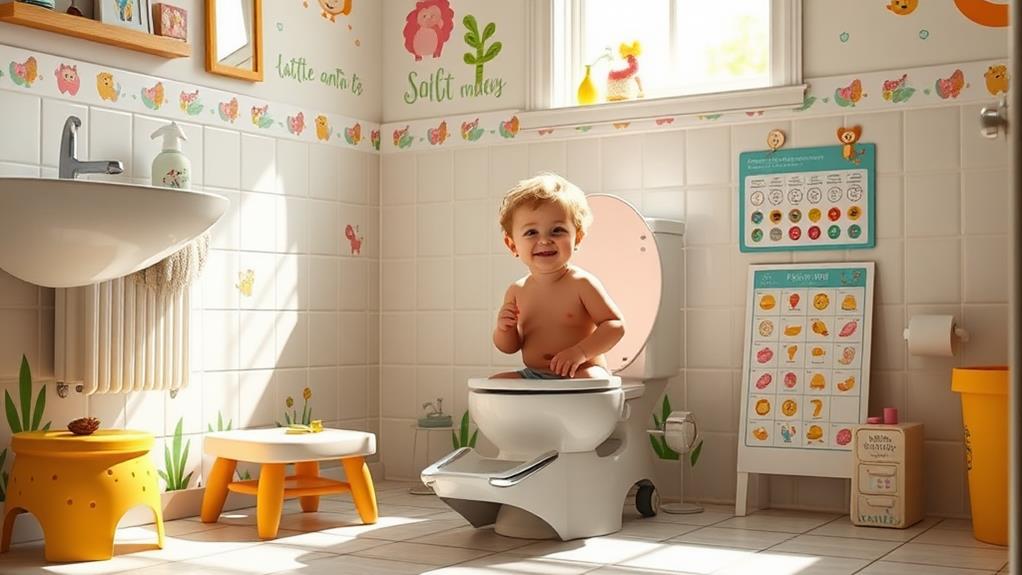High-Needs Babies: What They Are and How to Manage
If you're a caregiver or parent of a high-needs baby, you might already feel the weight of their unique demands. These infants often require more than the average amount of attention, leading to challenges in daily routines and emotional well-being. Understanding their specific characteristics can be crucial for navigating this journey effectively. You may wonder what practical strategies exist to help manage their needs while ensuring you also take care of yourself. As you explore these insights, you'll discover essential approaches that could transform your experience.
Defining High-Needs Babies

When you think of high-needs babies, imagine a little one who demands extra attention and care. These infants often have unique challenges that require more than the typical parenting approach. They're not just fussy; they might need more physical closeness, frequent feeding, or a consistent routine to feel secure.
You'll find that many high-needs babies react strongly to their environment, often becoming overwhelmed by sights and sounds.
As a parent or caregiver, it's essential to recognize these needs early on. High-needs babies may require you to adapt your daily life, allowing for more flexibility in your schedules. You might've to try different soothing techniques, such as swaddling or gentle rocking, to help calm them.
It's also important to remember that these babies don't fit into a one-size-fits-all category. Each one is unique, with their temperament and preferences.
Understanding and embracing these differences can make your journey smoother. By being patient and attentive, you'll create a nurturing atmosphere where your high-needs baby can thrive, and you can find joy in the bond you'll develop together.
Common Characteristics
During the early months of life, you'll likely notice several common characteristics that set high-needs babies apart from others. These little ones often exhibit intense emotions, whether they're happy or upset. You might find that your baby cries more than average, and it can be quite challenging to soothe them. They may also require more attention and physical closeness, often preferring to be held or carried.
High-needs babies tend to have heightened sensitivity to their environment. This means they might react strongly to sounds, lights, or textures that others might barely notice. You might also observe that your baby has irregular sleep patterns, often waking frequently throughout the night and being difficult to settle down.
Another characteristic is their strong desire for stimulation. High-needs babies usually enjoy engaging activities, such as playing with bright toys or listening to music, but they can become overwhelmed easily.
Lastly, these babies often show a strong attachment to their caregivers, wanting reassurance and comfort throughout the day. Recognizing these traits can help you better understand and respond to your baby's unique needs, creating a more harmonious environment for both of you.
Understanding the Causes

High-needs babies often exhibit distinct characteristics that point to underlying causes for their behaviors and sensitivities. These unique traits can stem from a variety of factors, including genetics, temperament, and environmental influences.
For instance, some babies are simply born with a more intense disposition, making them extra sensitive to stimuli like sounds, lights, and even textures. If you notice your baby reacts strongly to these elements, it might be related to their natural wiring.
Additionally, a baby's early experiences can shape their responses to the world. Stress during pregnancy, such as maternal anxiety or health issues, can lead to heightened sensitivity in babies.
Furthermore, the bonding process plays a significant role; if your baby struggles to connect, it can manifest as fussiness or clinginess.
Understanding these causes is essential because it helps you approach your high-needs baby with empathy and support. By recognizing that their needs stem from deeper issues, you can create a nurturing environment that validates their feelings.
This awareness can make a significant difference in how you respond and adapt to their unique challenges, fostering a stronger bond between you and your little one.
Practical Management Strategies
Managing a high-needs baby can be challenging, but you can implement several practical strategies to ease both your and your baby's experience.
First, establish a predictable routine. Babies thrive on consistency, so try to stick to regular feeding, sleeping, and playtimes. This predictability helps your baby feel secure and reduces anxiety for both of you.
Next, pay attention to your baby's cues. If they seem overwhelmed, try to create a calm environment by dimming the lights or reducing noise. You can also engage in soothing activities, like gentle rocking or swaddling, which often help high-needs babies feel more at ease.
Don't forget the importance of self-care. Caring for a high-needs baby can drain your energy, so take breaks when you can. Whether it's a short walk or a few moments of quiet, giving yourself time to recharge is essential.
Creating a Supportive Environment

A nurturing atmosphere plays a crucial role in the well-being of both you and your high-needs baby. Creating this environment starts with understanding your baby's unique needs. High-needs babies often thrive in settings that offer predictability and comfort. Establish a routine that includes regular feeding, sleeping, and playtimes. This consistency can help your baby feel more secure.
Next, consider the sensory experiences around you. High-needs babies may be sensitive to noise, light, or even textures. Aim for a calm space, minimizing loud sounds and bright lights. Soft lighting and gentle background music can create a soothing ambiance.
Additionally, surround yourself with supportive people. Family and friends can offer valuable help and encouragement. Don't hesitate to reach out when you need a break or someone to talk to.
Lastly, remember that your emotions influence your baby's mood. Maintaining a positive outlook can foster a loving atmosphere. When you feel balanced, your baby picks up on that energy.
Self-Care for Parents
Prioritizing self-care is essential for parents of high-needs babies. When you're caring for a baby with unique demands, it's easy to forget about your own needs. However, taking time for yourself can recharge your energy and improve your mood.
Start by carving out small moments during the day just for you, whether it's a quiet cup of tea or a short walk outside.
Try to establish a routine that includes activities you enjoy, like reading or exercising. These moments of joy can help you feel more balanced and connected to yourself.
Don't hesitate to ask for help. This might mean reaching out to family or friends to share the load or simply talking about your feelings. Remember, it's okay to seek support; you're not alone in this journey.
Also, consider practicing mindfulness or deep-breathing exercises to manage stress. These techniques can help ground you, making it easier to handle the challenges that come with raising a high-needs baby.
Ultimately, by taking care of yourself, you'll be in a better position to care for your little one, creating a healthier, happier environment for both of you.
Resources and Support Networks

Finding the right resources and support networks can make a significant difference in your journey as a parent of a high-needs baby.
It's essential to connect with others who understand your challenges and can offer practical advice. Local parenting groups, both online and in-person, often provide a wealth of shared experiences and tips that can make your days easier.
Consider reaching out to pediatricians or child development specialists who can guide you through specific concerns. They can connect you with community programs or therapists that cater to high-needs children.
Don't underestimate the value of local libraries or community centers, which frequently host parenting workshops and support sessions.
Online forums and social media groups can also be a lifeline. Just remember to choose groups that are positive and supportive, as this will help you feel encouraged rather than overwhelmed.
Long-Term Considerations
As your high-needs baby grows, it's important to consider the long-term implications of their unique needs on your family dynamics and future planning. High-needs infants often require more attention, which can shape your family's routines and interactions. You might find that your approach to parenting evolves, as you learn strategies to manage their needs efficiently.
Think about how your child's needs might impact your family's future. For instance, you may need to research specialized educational programs or therapeutic interventions as they enter school. Staying informed can help you advocate for your child effectively.
Additionally, be mindful of your own well-being. Caring for a high-needs child can be exhausting, so it's crucial to prioritize self-care and maintain a strong support network. This support can help you navigate challenges and celebrate successes together as a family.
Lastly, remember that flexibility is key. Your child's needs may change over time, and being adaptable can lead to better outcomes for everyone. By planning ahead and staying informed, you'll create a nurturing environment where your child can thrive, and your family can grow stronger together.














Post Comment